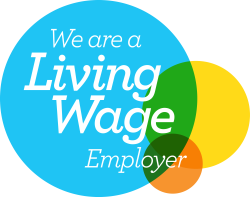
Remote Working : How it affects towns and cities
Remote working (Working from home) has been the norm for many employees and businesses during lockdown. It sounds idyllic – and it can be – but there are problems with remote working too. The “intentional & unintentional” consequences.
Remote working, if at all possible, was advised during the recent UK Covid lockdown. Something that many small- and medium-sized enterprises took advantage of. But working from home, along with flexi-working and hours, is nothing new.
Pre-pandemic, around 5% of the UK workforce were regularly working from home. There is a suggestion that for many, working from the kitchen table could become the accepted norm, as opposed to the perk that it has sometimes been seen. Some companies, including famously Twitter, have already come out and said that their employees can continue to work from home “forever”, even once the pandemic is done and dusted.
Being able to work remotely largely depends on what a company does and how it delivers its services. If employees rely on specific tools, for example, the chances of them being able to work at home are limited.
ONS figures show that for employees in the hospitality and food industry, working from home is a rarity. More than half of the workforce within the UK’s technology and telecommunications industry have and do work from home.
The realities of remote working (WFH)
Potentially, working from home means you can work when and where you want. The reality is often different. For companies, providing they have trust in their employees, this remote working arrangement can work.
WFH reduction in commuting
The daily commute can be stressful, with trains, buses and the underground busy, expensive and unreliable. On the other hand, for those employees who walk or cycle to work, it can be quite pleasant when the weather is nice.
The impact on towns and cities of remote working
That said, the impact on high-street businesses – if working from home continues at the high rate that it is – could be dire. Cafes, sandwich shops and other food outlets that rely on office workers, could find trading conditions tough. Other high street retailers, also reliant on this trade, would suffer.
Public transport operators, too, will find that they have fewer customers doing a regular daily journey with them. This may make journeys more pleasant for those taking them, but the companies’ bottom lines will be affected. This could lead to less regular, less reliable public transport provision in the long term.
On the other hand, the lockdown has led to significant drops in air pollution levels, as well as the feeling that towns and cities centres are less frenetic and more welcoming. This could continue to some degree if many people are allowed to continue working from home. People may enjoy the public spaces in their towns and cities more if there are fewer cars on the road and the air is cleaner.
Many businesses have had to rapidly adapt to the “new normal”, with cafes switching to delivering food and bricks-and-mortar retail stores selling online. These pivots could also change the landscape of towns and cities as we know them, with businesses relying more on digital and less on footfall.
Remote Working equals Flexible working
Not being consumed by the 9-to-5, Monday-to-Friday pattern of working is a welcome change and one that can work for employees balancing caring for older relatives and/or children, improving their overall wellbeing.
Working from home, especially in times of crisis such as the recent Covid pandemic, allows a business to continue to offer service provision. This is something that is especially important for entrepreneurial start-ups and SMEs. Meeting customer expectations is key to continued success and growth.
Working from home can be a great move for companies and employees alike. However, there are issues that need to be considered, to ensure that the detrimental impact on some areas can be minimised. Working with a forward thinking IT Support provider, who are able to deliver Managed Cloud services is a great start. Backed up by bullet-proof Remote IT Support in London and beyond will ensure your are always more productive! “Keeping IT Simple & Secure” is so much better for you!



